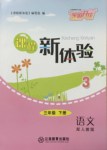题目内容
【题目】根据短文理解,选择正确答案。
It was an autumn morning shortly after my husband and I moved into our first house. Our children were upstairs unpacking, and I was looking out of the window at my father moving around mysteriously on the front lawn. “What are you doing out there?” I called to him.
He looked up, smiling. “I'm making you a surprise.” I thought it could be just about anything. When we were kids, he always created something surprising for us. Today, however, Dad would say no more, and caught up in the busyness of our new life, I eventually forgot about his surprise.
Until one gloomy day the next March when I glanced out of the window, I saw a dot of blue across the yard. I headed outside for a closer look. They were crocuses (番红花)throughout the front lawn — blue, yellow and my favorite pink, with little faces moving up and down in the cold wind. I remembered the things Dad secretly planted last autumn. He knew how the darkness and dullness of winter always got me down. What could have been more perfectly timely to my needs?
My father's crocuses bloomed (开花) each spring for the next five seasons, always bringing the same assurance: Hard times are almost over. Hold on, keep going, and light is coming soon.
Then a spring came with only half the usual blooms and the next spring there were none. I missed the crocuses, so I would ask Dad to come over and plant new bulbs. But I never did. He died suddenly one October day. My family were in deep sorrow, leaning on our faith.
On a spring afternoon four years later, I was driving back when I felt depressed. It was Dad's birthday, and I found myself thinking about him. This was not unusual — my family often talked about him, remembering how he lived up to his faith. Suddenly I slowed as I turned into our driveway. I stopped and stared at the lawn. There on the muddy grass with small piles of melting snow, bravely waving in the wind, was one pink crocus.
How could a flower bloom from a bulb more than 18 years ago, one that hadn't bloomed in over a decade? But there was the crocus. Tears filled my eyes as I realized its significance.
Hold on, keep going, and light is coming soon. The pink crocus bloomed for only a day, but it built my faith for a lifetime.
(1)According to the first three paragraphs, we learn that ________.
A.it kept bothering the author not knowing what the surprise was
B.the author was unpacking when her father was making the surprise
C.it was not the first time that the author's father had made a surprise
D.the author knew what the surprise was because she knew her father
(2)Which of the following statements is NOT true according to the passage?
A.The author usually felt depressed in the season of winter.
B.The author's father planted the crocuses to lift her low spirits.
C.The author often thought about her father after he died.
D.The crocuses bloomed each spring before her father died.
(3)The author's father should be best described as ______.
A.a part-time worker who loved flowers
B.a kind-hearted man who lived with faith
C.a full-time gardener with skillful hands
D.an ordinary man with doubts in his life
(4)What can be the best title for the passage?
A.Crocuses — My Source of Faith
B.Crocuses— Father's Surprise
C.A Pink Crocus — My Memory
D.Crocuses in Blossom — My Favorite
【答案】
(1)C
(2)D
(3)B
(4)A
【解析】这是一篇记叙文,作者讲述了自己与父亲之间一个感人的故事。父亲种的番红花每年春天迎风摇曳,仿佛在说艰难总会过去,光明即将到来。这时作者就会想起慈爱的父亲和父亲通过番红花告诉他的信念。
⑴考查细节理解。根据第一段中的“When we were kids, he always created something surprising for us.”可知,我们小时候父亲总是给我们制造一些惊喜,故选C。
⑵考查细节理解。根据第五段中的“Then a spring came with only half the usual blooms and the next spring there were none. I missed the crocuses”可知,父亲在世时番红花并不是每年都开花,D错误。故选D。
⑶考查推理判断。纵观全文可知,父亲知道女儿冬天容易情绪低落,所以种了番红花,让它在春天点缀女儿的心情,提醒她光明即将到来。由此可知父亲是kind-hearted,根据倒数第三段中的“my family often talked about him, remembering how he lived up to his faith.”可知,父亲是有信念的人,故选B。
⑷考查主旨大意。父亲通过种番红花让女儿心情好起来,通过番红花时刻告诉女儿艰难总会过去,光明即将到来的信念。

 芝麻开花课程新体验系列答案
芝麻开花课程新体验系列答案